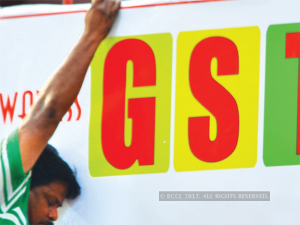1 min read
Flipkart fails to get GST Suvidha Provider status

December 22, 2024
Copyright 2023, IT Voice Media Pvt. Ltd.
All Rights Reserved

 The GST Network, the nodal agency in charge of the technological infrastructure for the new goods and services tax regime, has shortlisted 69 more companies to become GST Suvidha Providers to facilitate more channels to route invoices under the GST to the central database.
The GST Network, the nodal agency in charge of the technological infrastructure for the new goods and services tax regime, has shortlisted 69 more companies to become GST Suvidha Providers to facilitate more channels to route invoices under the GST to the central database.